Germany
Estonia
Estonian Christmas is a mixture of traditional and modern, a combination of cultures and cuisines. Estonians celebrate Christmas on Christmas Eve (24th December). Christmas in Estonia is magical. Every town and city has a huge Christmas tree in the middle of the square. Traditional Estonian Christmas food includes black pudding, sauerkraut, pork, yelly meat, potatoes and gingerbread cookies. Father Christmas and dwarfs are visiting homes and Christmas parties.

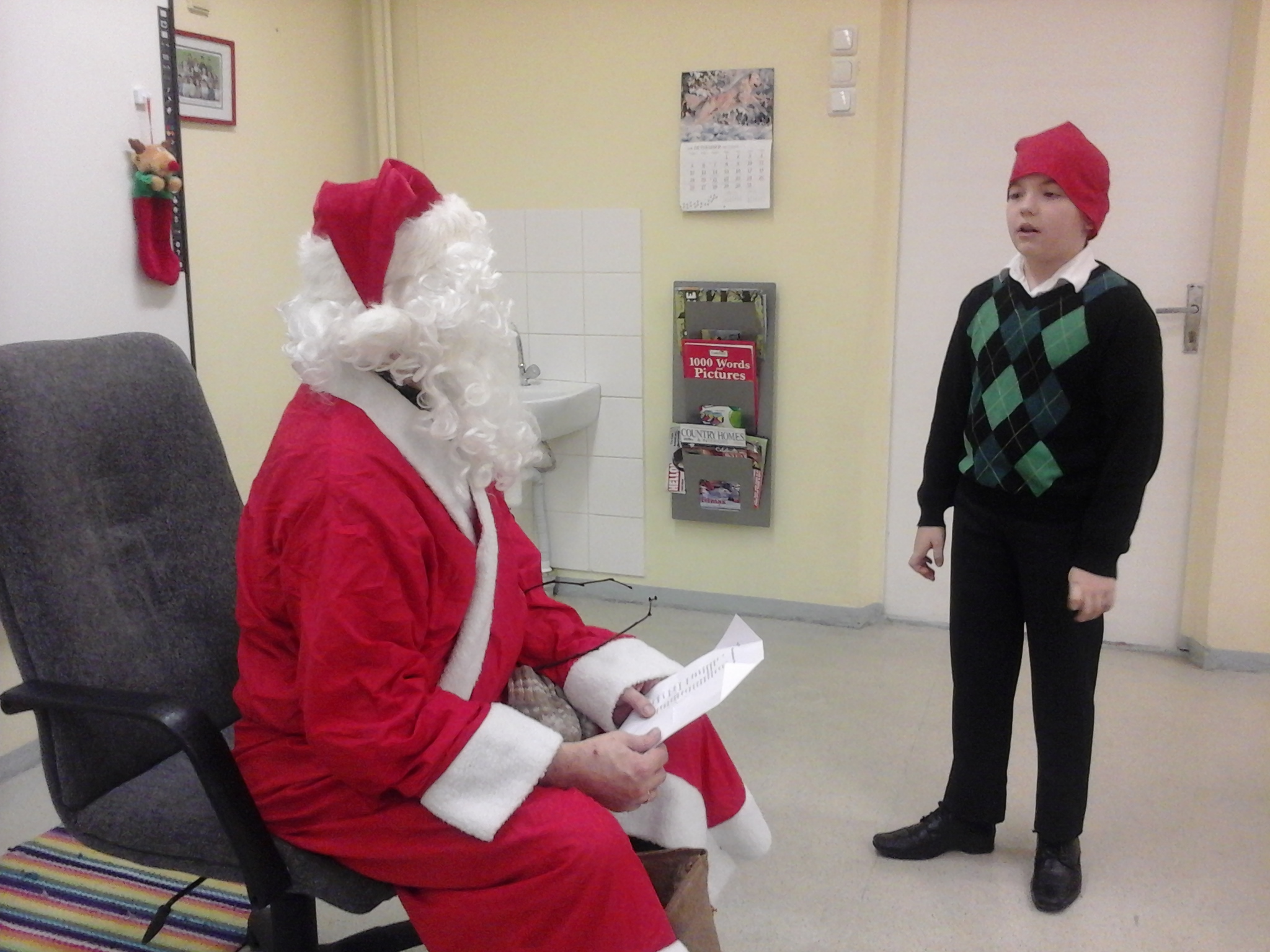
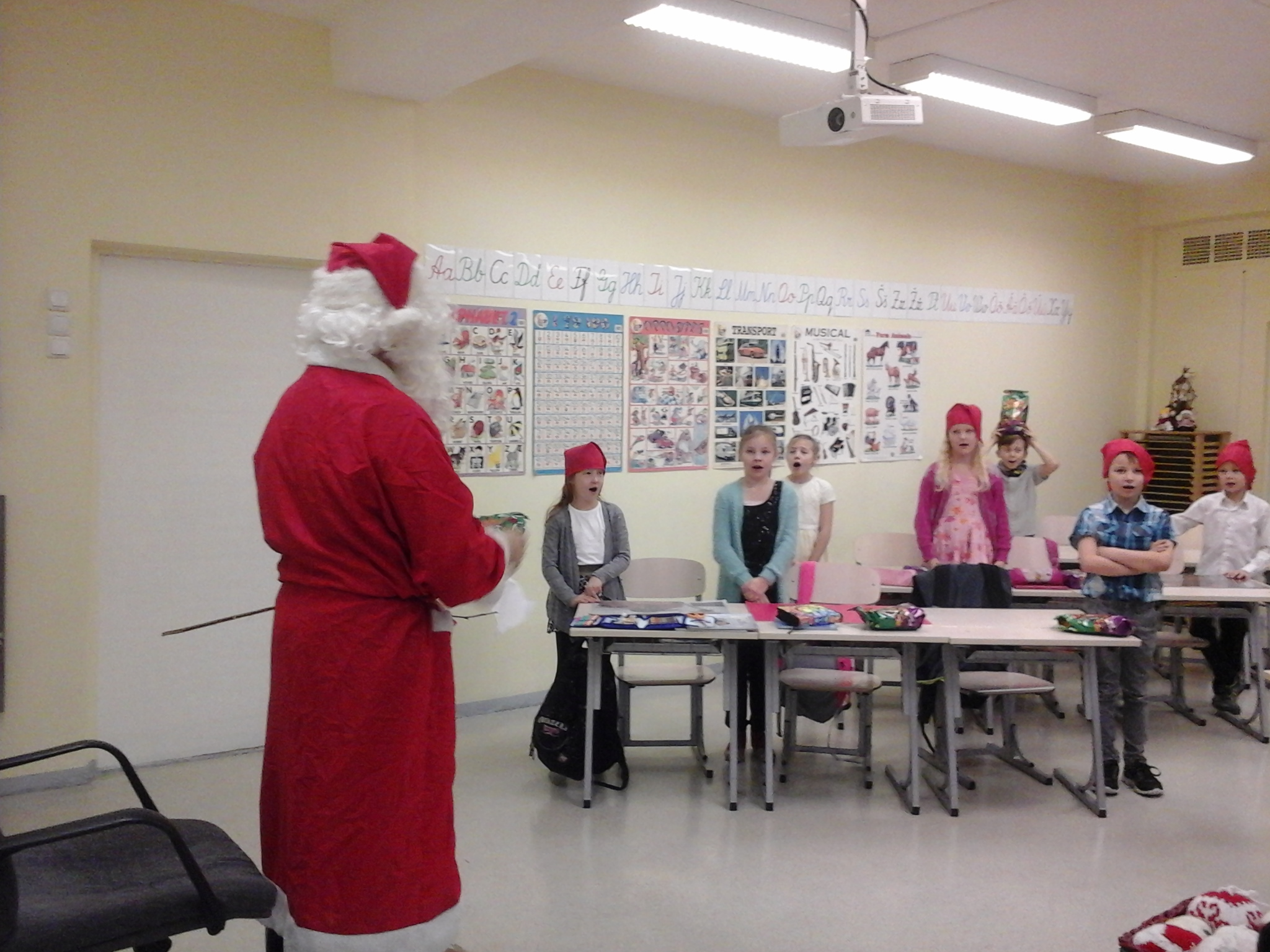
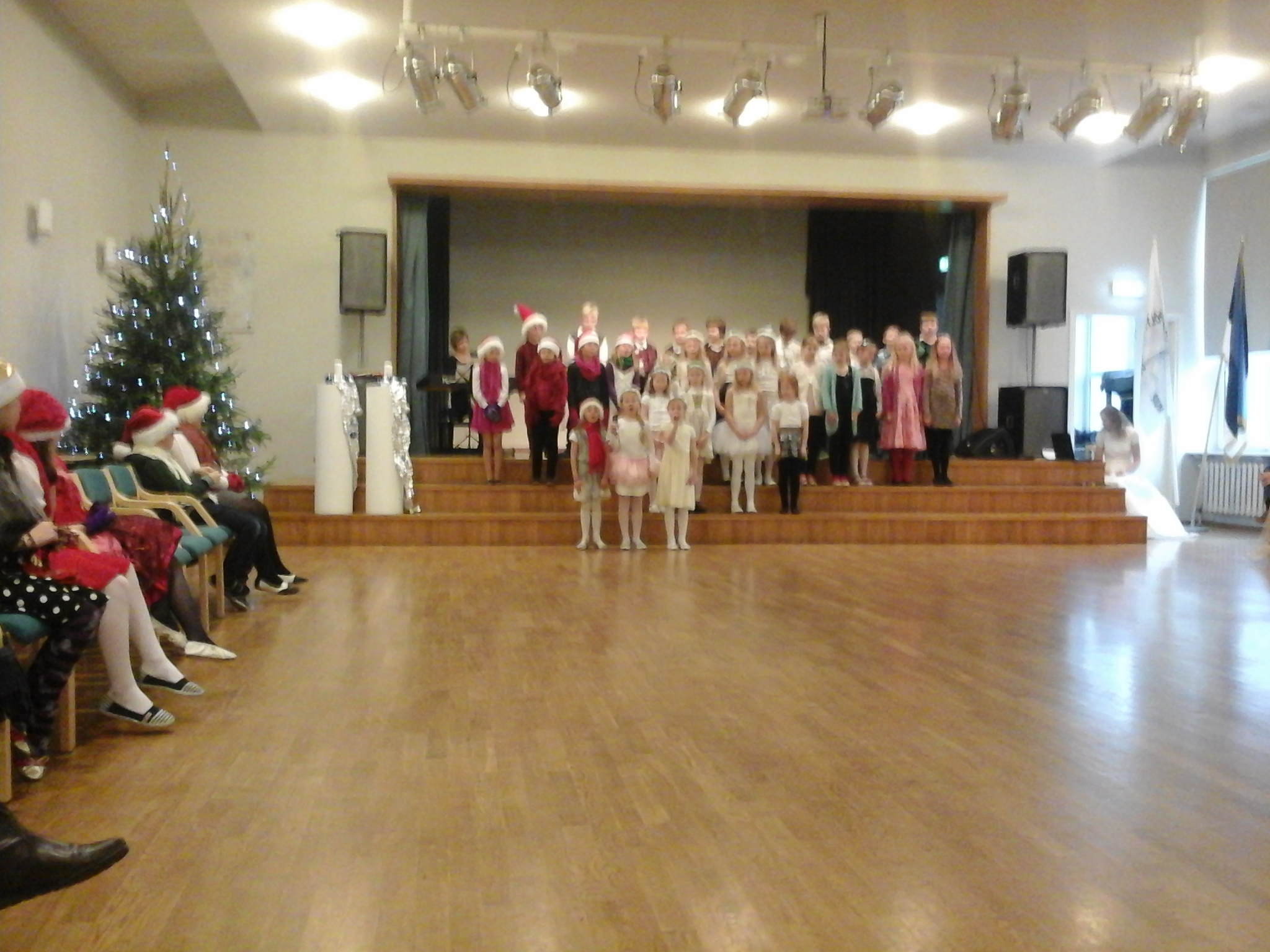
England
Some people go to church on Christmas Day (25 December).
Children write a Christmas list of presents they want to receive from Santa.
Children put out a carrot or reindeer food, a beer and mince pies for Santa and your stocking.
We hang up misteltoe.
We spend time with our families. We exchange presents on Christmas Day (25 December).
In the towns, we have a Christmas tree, decorations and lights.
People go carol singing in the town or to people's houses.
The shops are full of Christmas things! Sometimes the shops paint their windows. The shops are all shut on Christmas Day.
If it snows, we build snowmen.
Poland
Families have Christmas Eve dinner together on 24th December with 12 dishes.
Children decorate Christmas trees at homes and in their classrooms.
Everyone gets presents
Christmas decorations are at all homes and in the streets.
In Poland Christmas is connected with plenty of charity events when we raise money for those who are in need. Some national charity events take place - our school of course joins some of them. One of the national charity event we take part in is "Góra Grosza" (A mountain of coins) - children collect coins for orphans. This year we had a school charity event for a two-year-old boy who suffers from leukemia. We also made Christmas presents for disabled children from our local school for children with special needs. Our students also took part in some classes with disabled children (they made Christmas decorations and decorated gingerbreads together) and they performed nativity play together.
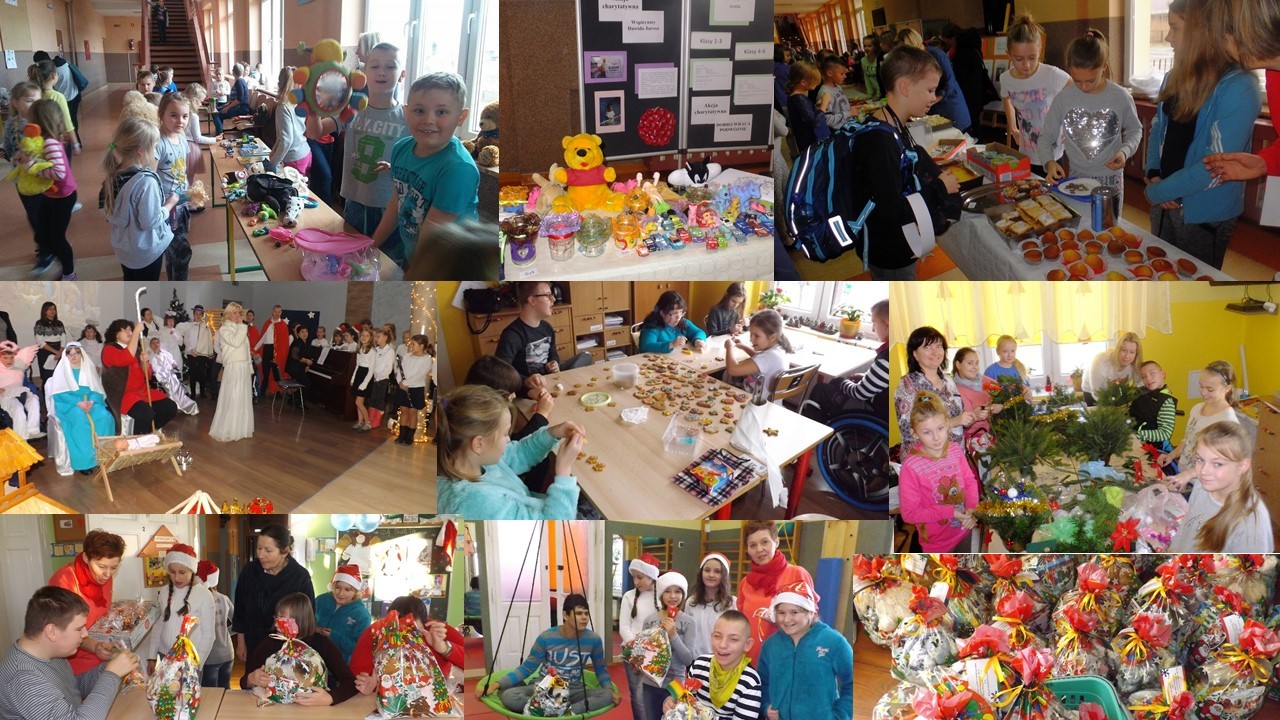
In Poland on last day at school before Christmas holiday we celebrate Christmas: every class meets on Christmas meal with traditional Christmas dishes and they sing Christmas carols. This year my class had different kinds of gingerbreads and panettone and a Spanish cake, but we do not know its name - it's made with peanuts, wafer and delicious cream. We began with opłatek (holy wafer), we shared it and wished each other Merry Christmas. Then we went to the gym where we watched the nativity scene and sang Christmas carols.
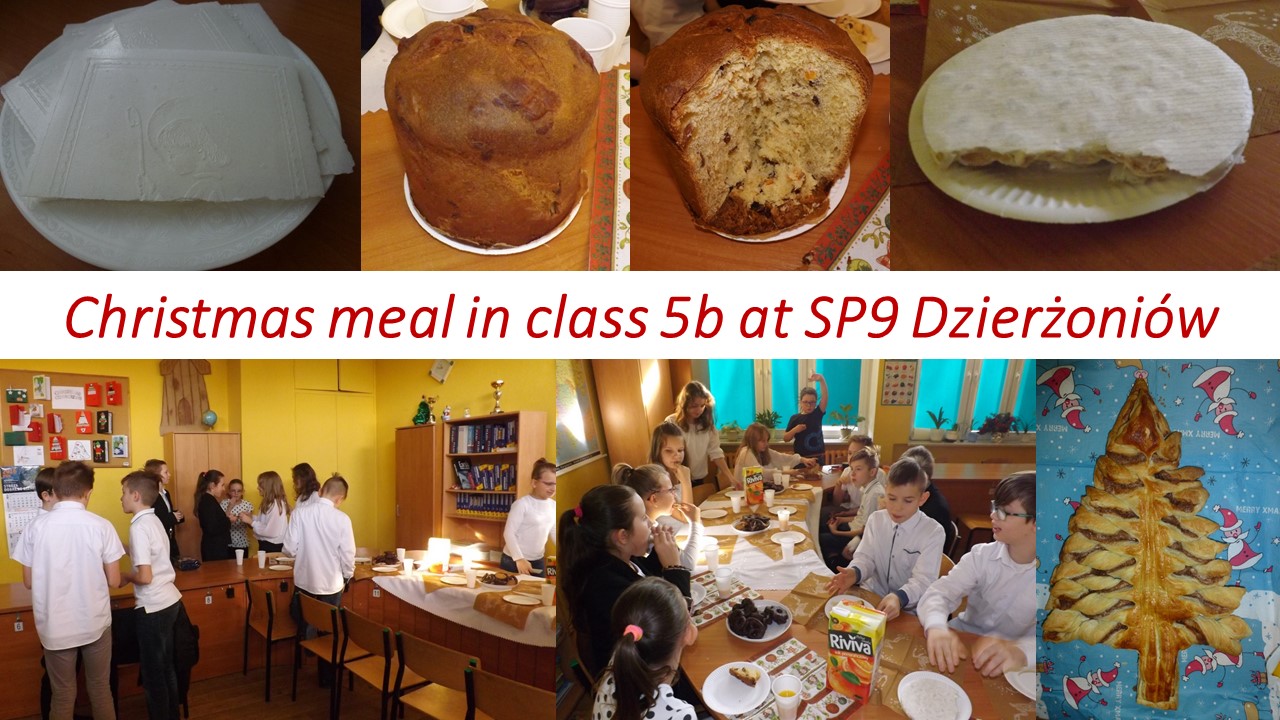
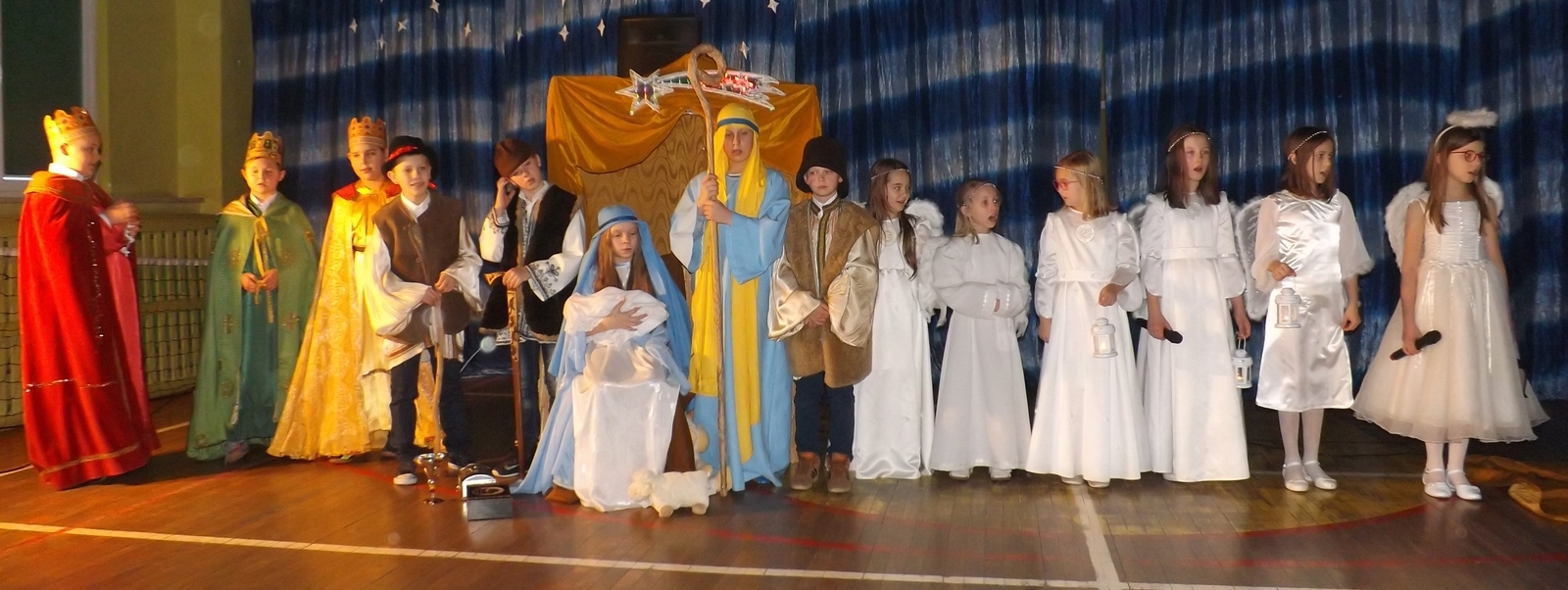
Germany
Here is a video about our traditions:
Georgia
In Georgia we celebrate Cristmas on the 7 January and most people attend church services for the whole night, whose who can't go there watch live broadcast from Sameba Cathedral.
It's a tradition to light a candle on the window sill at night.
There are Christmas trees in every house. Family members give presents to each other. There are family parties after the long Cristmas fast.
On Chrismas Day people go through the streets collecting presents and donations from people for charity singing Alilo all the way.
The streets in every town and village are decorated from 30th December to 15th January.
We celebrate two New Years: the first one with the whole world on 1 January, the other on 14 January after Christmas. We call it the Old New Year.
In most houses we have chichilaki, a kind of Christmas tree made from nut branches. People believe that chichilaki will bring luck and prosperity to the family.
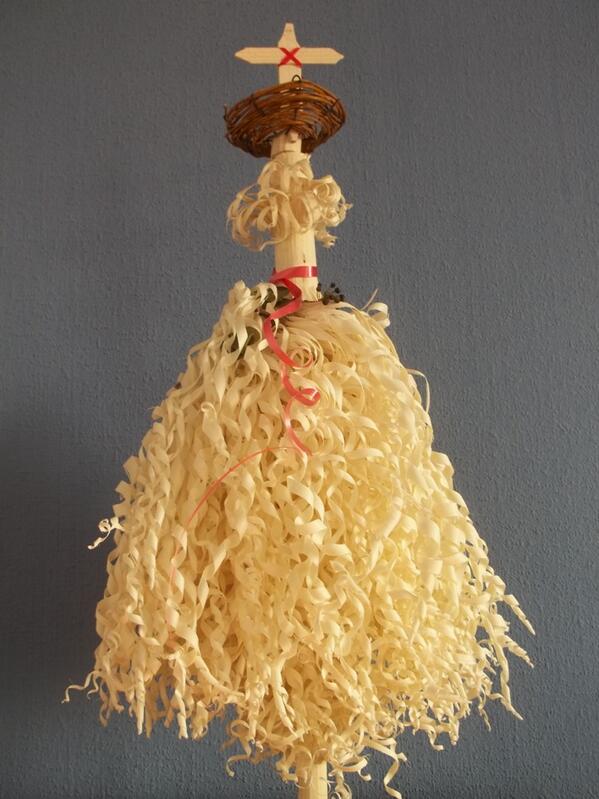
ROME ITALY
Here in Roma we celebrate the Christmas festivities as in England do but there are some differences:
- Children prepare milk and biscuits for Santa Klaus ( Babbo Natale in italian)
- in the catholic families they usually prepare also a crib (presepe in italian) near the christmas tree
- people don't go carol singing in the town
- in some families children hide a christmas letter under mum's and dad's dishes and then they read it at the biginning of the christmas lunch.
- on the 6th of January we celebrate Epiphany and chidren put socks near chimney. In the morning they find them full of confectionery and sometimes a little present too.
- here in Rome it never snows so we can't build snowmen.

This is one pupil's crib.
Malta - Gozo
Our pupils put up a nativity scene in a particular place in Gozo as part of Milied Tfuliti (Christmas in bygone days ... ). This place is called Lunzjata Valley and the scene took place in an old house, called Ghar (cave) u (and) Casa (house) because it was a cave, but a house was built around it. Baby Jesus was a real baby too! It is a tradition that a boy delivers a sermon before the Midnight Mass, on Christmas Eve. He has delivered a sermon in a medieval chapel, near ghar u casa dedicated to Our Lady of the Annunciation.
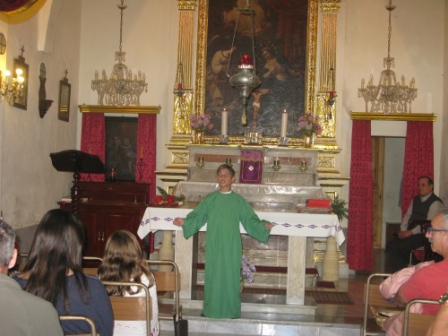
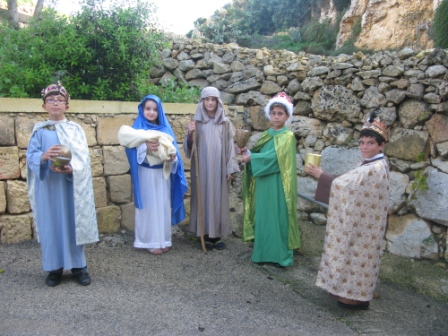
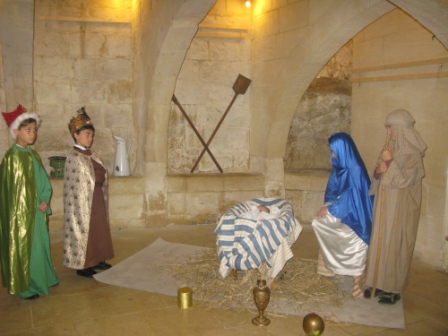
We are preparing vetches for Christmas ... here is how to do it...
Spain (Pontevedra)
Christmas lights cover our town these days.
We decorate our homes ...

Christmas lottery "El gordo" is on the 22nd of December , the day Christmas Holidays start for schools. El número 66.513, premiado con el Gordo del sorteo de la Lotería de Navidad
El número 66.513, premiado con el Gordo del sorteo de la Lotería de Navidad
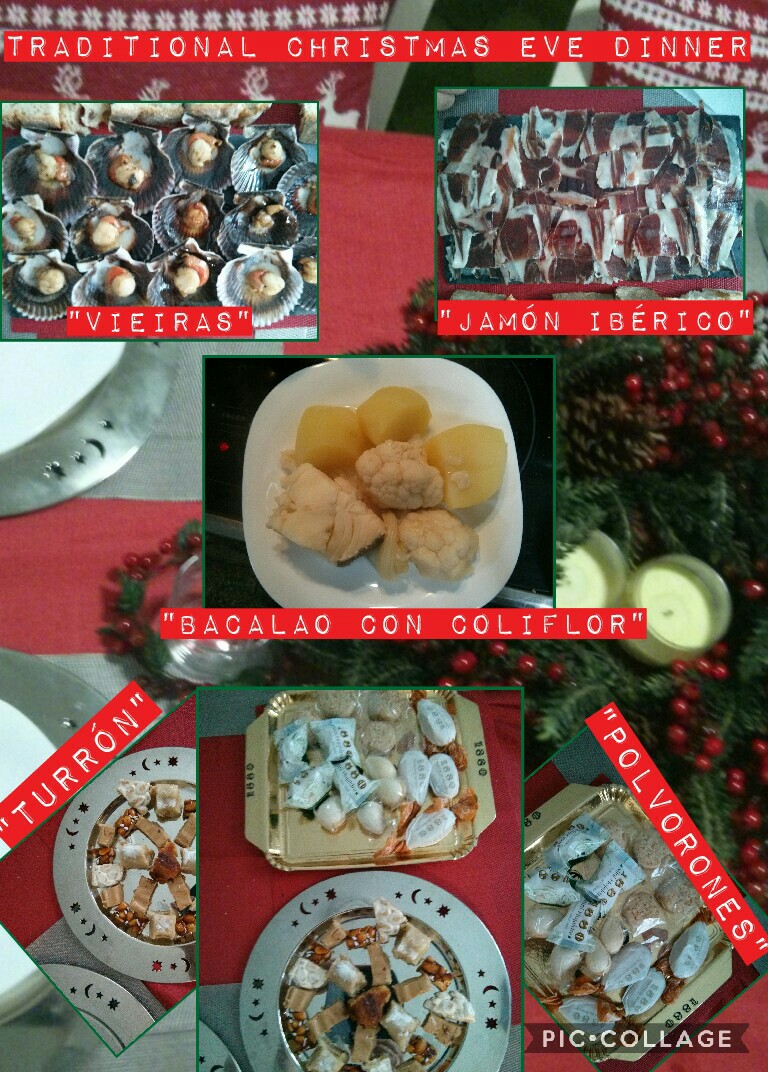
and we have some traditional dishes on the 24th of December, at Xmas eve, in Galicia:
"Jamón Ibérico" and seafood, ("vieiras" in the image)
"Bacalao con coliflor" as main course.
For dessert we have "turrón" and "polvorones"
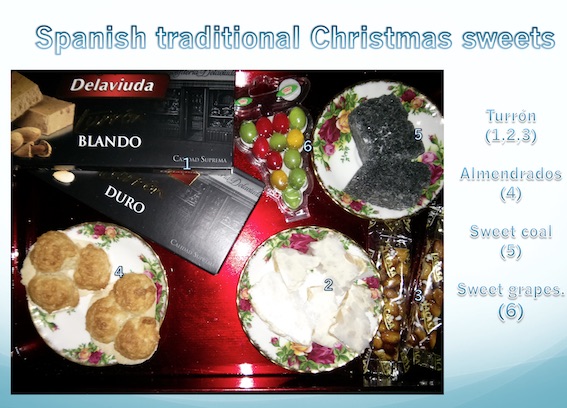
At New Yer´s eve we have twelve grapes following the "Puerta del Sol" clock bell strokes wishing good luck for the New Year.
Five minutes before the countdown...
On Spanish TV...
. ¡Así despedimos el 2016 y recibimos al 2017!
¡Así despedimos el 2016 y recibimos al 2017!
...and in English too!
In Spain, the threee wise men bring presents on Epiphany´s eve.
Children leave water for the camels and a glass of milk and some biscuits for the three kings.
The threee wise men visit every town in a big parade withfloats throwing sweets and confetti. Pupils from our school helped them this year to throw sweets for children in the streets.
When children have been naughty , they bring sweet coal made out of coloured sugar which can be eaten (number 5 in the Spanish Traditional Christmas sweets image).

The traditions of Christmas from around the world have influenced the way in which New Year is being celebrated in our country. We celebrate Christmas not on the 25th December, but on the 31st in Turkey.Actually, we just celebrate new year.
As in many other places in the world that Turkey, on the evening of New Year’s Eve celebrations are organized in a variety of entertainment .“Yeni yılınız kutlu olsun / Mutlu Yıllar” this is how you say “merry christmas “in Turkish. Actually, Turkey has no Christmas tradition. People in Turkey who celebrate Christmas do same things as other people who celebrate Christmas. Well-attended celebrations in metropolitan cities, squares, fireworks, parades, concerts. In Istanbul, the biggest Turkish citiy, this holiday traditionally starts on the Taksim square in the heart of the city. New Year celebrations are famous here. And if you prefer to celebrate outdoors, head for Nişantası‘s giant street party. Starting mid-December, streets and stores are decorated in a similar fashion Western countries do for Christmas. You’ll find plenty of Christmas trees, (street) lights. Several thousand people meet at this central meeting point in order to dance to the music of the New Year’s Concert and to see the big fireworks.

Turkish people do not celebrate Christmas as such, however they are beginning to put up Christmas trees and lights etc. This is only due to a trend, and does not mean a religious inclination. You can buy Christmas trees in every major supermarket; the streets, shops and houses are festively decorated and the loudspeakers in the shopping malls .Despite all that, however, December 24th and 25th are completely normal work days. No one celebrates or exchanges gifts. For the Turkish, December 31st is the “Great Day”. On this day they celebrate “Yıl-başı”, the “head of the year”. After entering the new year gift-giving Posts are also common. In addition, the bingo game is played in most homes. They will have a roast Turkey dinner with friends and family, and exchange gifts and cards.On New Year’s Eve the big lottery draw takes place.
Although most Turkish people are Muslims, they are more relaxed about Islam than the other Muslim countries as demonstrated by the facts that they do consume alcohol, some eat pork/boar, and most women do not wear the Islamic clothes. The idea of Christmas for the Turkish is not a throughly alien one: Santa Claus (Father Christmas) was born in Turkey and is called Noel Baba in Turkish. A historic temple where his home was still exists today and is open for visits. It has long been the tradition, especially amongst the more educated and west-oriented
families, that Noel Baba would bring gifts to kids on the New Year’s Eve.